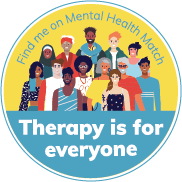TEEN THERAPY
Teenagers can sometimes seem moody due to a variety of factors that are often related to the challenges and changes they’re experiencing during this stage of life:
- Hormonal Changes: Adolescence is a time of significant hormonal fluctuations, which can influence mood swings and emotional responses.
- Identity and Independence: Teens are in the process of forming their identity and seeking more independence. Frustrations can arise from feeling misunderstood or not having control over their lives.
- Peer Pressure and Social Dynamics: Peer Pressure, the desire to fit in, and social dynamics can create stress and lead to emotional reactions.
- Academic Pressure: High academic expectations, exams, and transitioning to new environments can contribute to stress and frustration.

- Family Relationships: Struggles with family members, clashes of values, and transitional life change can trigger emotions and symptoms of depression and anxiety. Some changes may include loss of friendships, parents’ divorce, and/or relocating.
- Body Image Issues: Adolescents may struggle with body image and self-esteem, which can contribute to feelings of frustration and moodiness.
- Lack of Coping Skills: Teens are still developing emotion regulation and coping skills, which can lead to difficulty identifying and managing intense emotions when they arise.
Teens may not talk with their parents due to fear of judgment. Teens may fear that their parents will judge them, and criticize them for their thoughts, feelings, or actions, leading them to keep certain matters to themselves. Counseling provides a safe, nonjudgmental environment for teens to talk, feel heard, and receive the necessary support, guidance, and coping skills to navigate adolescence.






